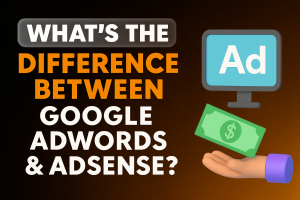Choosing the right e-commerce platform is one of the most important decisions you’ll make for your business. A wrong choice can lead to slow websites, frustrated customers, and lost sales, all of which can cost you both time and money. In today’s fast-paced digital world, customers expect quick, smooth, and secure shopping experiences. If your platform can’t deliver, they won’t hesitate to shop elsewhere.
This blog will help you navigate the options available so you can make an informed decision. We’ll break down the key factors to consider, compare popular platforms like Shopify and WooCommerce, and share common mistakes that many business owners make so you can avoid them and confidently choose the best e-commerce solution for your business.
Key Factors to Consider When Choosing an e-commerce Platform
Choosing an e-commerce platform isn’t just about picking the most famous name or the one with the best-looking dashboard. It’s about finding a system that supports your goals, speaks your customer’s language, and grows with your business. Here are some key factors you should consider:- Ease of Use Is the platform beginner-friendly? Can you update products, manage orders, and create promotions without needing a developer every time? 2. Customization and Design Your website should reflect your brand. Does the platform allow for customization? Can you easily change layouts, fonts, and colors? At HDM, we offer custom website design services that ensure your online store not only works well but looks amazing too.
- Payment Gateway Integration
5. Scalability
Will the platform grow with you as your business expands? Choose a system that can handle more products, users, and traffic without slowing down or crashing.6. SEO and Marketing Tools
Does the platform support SEO-friendly URLs, blogs, email marketing, and integration with tools like Google Analytics? Without this, you’ll struggle to drive traffic and sales.
Comparison of Popular Ecommerce Platforms
Selecting the right ecommerce platform is a pivotal decision for your business. It can be the difference between a smooth, scalable online store and one that feels like a constant uphill battle. Let's explore some of the most popular platforms in 2025, highlighting their strengths and considerations to help you find the best fit for your needs.1. Shopify: Best for Quick Setup and Growth Shopify is a user-friendly, all-in-one solution that allows you to launch your online store swiftly. It's ideal for entrepreneurs and small businesses aiming to get online without a steep learning curve.
Key Benefits:-
- Ease of Use: Intuitive drag-and-drop interface.
- Comprehensive Tools: Built-in features for payments, shipping, and marketing.
- Scalability: Grows with your business, supporting everything from small shops to large enterprises.
-
- Monthly Fees: Subscription-based pricing can add up.
- Customization Limits: Advanced customizations may require additional apps or coding knowledge.
2. WooCommerc: Perfect for WordPress Users WooCommerce is a free, open-source plugin for WordPress, offering extensive customization options. It's a go-to for businesses already using WordPress or those needing a tailored ecommerce solution.
Key Benefits:- Flexibility: Full control over design and functionality.
- Cost-Effective: The core plugin is free; additional costs come from hosting and premium extensions.
- Community Support: Backed by a large community of developers and users.
- Technical Setup: Requires hosting and some technical know-how.
- Maintenance: Ongoing updates and security measures are your responsibility.
3. BigCommerce: Suited for Growing Enterprises BigCommerce is a robust, hosted platform designed for businesses with large inventories or complex sales processes. It offers advanced features without the need for extensive technical expertise.
Key Benefits:- Built-In Features: Advanced tools for SEO, analytics, and multi-channel selling.
- No Transaction Fees: Unlike some competitors, BigCommerce doesn't charge transaction fees.
- Scalability: Designed to support growth without compromising performance.
- Learning Curve: The platform may require time to master due to its comprehensive features.
- Design Limitations: Fewer free themes compared to some competitors.

4. Wix Ecommerce: Great for Small Businesses and Creatives Wix is a website builder that includes ecommerce functionality, ideal for small businesses and individuals focusing on design aesthetics. It's known for its simplicity and visually appealing templates.
Key Benefits:- User-Friendly: Drag-and-drop interface suitable for beginners.
- Design Flexibility: Access to a wide range of templates and design elements.
- Integrated Tools: Includes features like abandoned cart recovery and dropshipping capabilities.
- Scalability: May not be suitable for businesses planning significant growth.
- Advanced Features: Lacks some advanced ecommerce functionalities found in other platforms.
5. Magento (Adobe Commerce): Best for Large Enterprises with Complex Needs Magento, now Adobe Commerce, is an open-source platform offering unparalleled customization and scalability for large enterprises. It provides a robust solution for businesses with specific requirements.
Key Benefits:- Customization: Extensive options for tailoring the platform to specific business needs.
- Multi-Store Capabilities: Manage multiple stores from a single backend.
- Global Reach: Supports multiple languages, currencies, and tax rates.
- Technical Expertise: Requires a dedicated development team for setup and maintenance.
- Cost: High initial setup and ongoing maintenance costs.
How to Match the Platform with Your Business Model
Choosing the right e-commerce platform should go beyond just considering the features and pricing. It’s about matching the platform with the unique needs and structure of your business model. Every business is different, and the e-commerce solution that works perfectly for one might not suit another. Here's how to align the platform with your business model:- Consider Your Product Type Different platforms cater better to different kinds of products. For example, Shopify is great for businesses with physical products, offering straightforward inventory management and order processing. On the other hand, if your business revolves around digital goods like software or e-books, platforms like WooCommerce might provide the flexibility and control you need.
- Evaluate Your Sales Channels Think about where and how you plan to sell. If you aim to sell on multiple channels such as your website, social media, and marketplaces (like Amazon or eBay), make sure the platform supports multi-channel integration. BigCommerce, for instance, is known for its ability to connect with a wide variety of online marketplaces, whereas platforms like Wix are better suited for a single, independent store.
- Understand Your Customer Base Your customers’ preferences and buying behaviors should dictate certain platform features. If you're targeting a global audience, Magento offers excellent multi-currency and multilingual capabilities, whereas smaller, regional businesses might find WooCommerce or Shopify a better fit. Understanding your customer base will help you decide which features are non-negotiable, like local payment integrations or mobile responsiveness.
- Consider Your Budget Business models vary significantly when it comes to the budget they can allocate for e-commerce platforms. If you have limited resources, Shopify or Wix might be more affordable, offering affordable monthly plans. However, if you're running a large business with significant sales and traffic, investing in a platform like Magento could be more cost-effective in the long run, despite higher upfront costs.
Common Mistakes to Avoid When Choosing an E-commerce Platform
Choosing an e-commerce platform isn’t just about selecting a tool that fits your current needs; it’s about planning for the future of your business. Many business owners fall into common traps when selecting a platform, which can lead to wasted resources, frustration, and missed opportunities. Let’s break down some of the most common mistakes to avoid:1. Focusing Solely on Price
While it’s tempting to choose the cheapest option, it’s crucial to consider the long-term costs associated with each platform. A low-cost platform may have hidden fees, poor customer support, or limitations that might require expensive upgrades or third-party apps. Don’t sacrifice quality and scalability for short-term savings.2. Underestimating Technical Support Needs
Even if you choose a beginner-friendly platform like Wix or Shopify, you will still encounter technical issues that require assistance. Choosing a platform that lacks comprehensive support or relying solely on self-service documentation can lead to lost time and revenue. Opt for a platform with strong customer support and a user-friendly interface that minimizes the need for constant tech assistance.3. Ignoring Mobile Optimization
With mobile shopping on the rise, it's crucial to choose an e-commerce platform that offers mobile optimization or apps for mobile devices. Platforms like Shopify are known for providing responsive themes, but it's easy to overlook the importance of mobile optimization when your site looks perfect on a desktop.4. Choosing the Wrong Platform for Growth
Many businesses begin with an entry-level e-commerce solution that fits their needs, but they often fail to plan for future growth. As your product range and customer base expand, you’ll need a platform that can scale. Failing to choose a platform with scalability can result in migrating to another platform, which can be both time-consuming and expensive.5. Neglecting SEO and Marketing Tools
A website without SEO capabilities is like a store with no customers. Make sure the platform you choose includes SEO-friendly features such as customizable URLs, meta tags, and built-in analytics. Without the right marketing tools, you’ll find it hard to attract customers, no matter how great your product is. By keeping these mistakes in mind and making informed decisions, you’ll ensure a smoother and more successful e-commerce journey.Conclusion
Selecting the right e-commerce platform is more than just a technical decision; it’s a strategic one that can directly impact your sales, customer satisfaction, and growth trajectory. It’s important to understand the specific needs of your business, match them with the features offered by each platform, and avoid common pitfalls that can hinder success. Whether you're just starting or scaling a growing business, taking the time to thoroughly research your options will pay off in the long run. Remember, there’s no one-size-fits-all solution. Choose a platform that aligns with your business goals, budget, and growth potential. By doing so, you’ll be able to provide your customers with a seamless shopping experience while positioning your business for success in the competitive e-commerce space. However, it's crucial to be aware of common mistakes in web design that can hinder your site's performance and user experience.FAQ
- What is the best e-commerce platform for small businesses?
- Can I switch platforms later if my business grows?
- What is the most affordable e-commerce platform?
- Does my e-commerce platform need to be mobile-friendly?




